
Blog, Cuba, Videos
Raúl Castro’s Speech At Cuba’s Sixth Communist Party Congress
April 17, 2011 By Staff
The Party must be convinced that beyond material needs and cultural interests our people hold a diversity of concepts and ideas about their own spiritual necessities.
Our National Hero José Martí, a man who synthesized that convergence of spirituality and revolutionary sentiments, wrote many pages about this subject.
Fidel addressed this topic quite early, in 1954, when still in jail he evoked Renato Guitart, one of the martyrs of the Moncada: “Physical life is ephemeral; it inexorably passes; the same as many and many generations of men have passed, as our own lives will shortly pass. This truth should teach every human being that the immortal values of the spirit stand above them. What is the meaning of life without the spirit? What is life then? How can death take those that understand this and still generously sacrifice their lives to good and justice!”
These values have always been present in his ideas, and so he insisted on them in 1971, at a meeting with catholic priests in Santiago de Chile: “I tell you that there are ten thousand times more coincidences of Christianity with Communism than there might be with Capitalism.”
And, he returned to this idea as he addressed the members of the Christian churches in Jamaica in 1977. He said: “We must work together so that when the political idea succeeds the religious idea is not separate and does not appear as the enemy of changes. There are no contradictions between the purposes of religion and the purposes of socialism.”
The unity of the revolutionary doctrine and ideas with regards to faith and its followers is rooted in the basis of the nation, which in asserting its secular nature promoted as an unwavering principle the unity of the spirituality with the Homeland bequeathed by Father Felix Varela and the teachings of Luz y Caballero, who categorically said: “I would chose to see the fall of not only the institutions created by man –kings and emperors—but even the stars from the firmament rather than see falling from the human breast the sentiment of justice; that sun of the moral world.”
In 1991, the 4th Party Congress agreed to modify the interpretation of the statutes that limited the admission to our organization of revolutionaries with religious beliefs.
The justice of this decision has been confirmed by the role of leaders and representatives of various religious institutions in the different facets of the national life, including the struggle for the return to our Homeland of the child Elián, in which the Cuba Council of Churches played a particularly outstanding role.
However, it is necessary to continue eradicating any prejudice that prevents bringing all Cubans together, like brothers and sisters, in virtue and in the defense of our Revolution, be them believers or not, members of Christian churches; including the Catholic Church, the Russian and Greek Orthodox Churches, the evangelicals and protestant churches; the same as the Cuban religions originated in Africa, the Spiritualist, Jewish, Islamic and Buddhist communities, and fraternal associations, among others. The Revolution has had gestures of appreciation and concord with each of them.
The unforgettable Cintio Vitier, that great poet and writer, who was a deputy to our National Assembly, used the force of his pen and of his Christian and deeply revolutionary ethic, so profoundly rooted in Martí’s, to leave us warnings for the present and the future that we should always remember.
Cintio wrote: “What is in danger, we know it, is the nation itself. The nation is by now inseparable from the Revolution that has been a part of it since October 10, 1868, and it has no other alternative: it is either independent or it is no more.
“If the Revolution were defeated, we would fall in the historic vacuum that the enemy wants for us and prepares for us, and that even the most basic people perceive as an abyss.
“It is possible to arrive at defeat, we know, through the intervention of the blockade, of internal decay, and the temptations imposed by the new hegemonic situation in the world.”
After stating that “We are at the most challenging time of our history,” he admonished: “Forced to fight the irrationality of the world to which it fatally belongs; always threatened by the sequels of dark age-old blights; implacably harassed by the most powerful nation on Earth; and also a victim of imported or indigenous blunders that history shows have never gone unpunished, our small island constricts and dilates, systole and diastole, as a glimmering of hope to itself and to others.”
Now, we should address the recently concluded process of releasing counterrevolutionary prisoners, those that in challenging and distressing times for our Homeland have conspired against it at the service of a foreign power.
By sovereign decision of our Government, they were released before fully serving their sentences. We could have done it directly and take credit for a decision that we made conscious of the fortitude of the Revolution. However, we did it in the framework of a dialogue based on mutual respect, loyalty and transparency with the senior leadership of the Catholic Church, which contributed with its humanitarian labors to the completion of this action in harmony; in any case, the laurels correspond to that religious institution.
The representatives of the Catholic Church expressed their viewpoints, not always coincidental with ours, but certainly constructive. This is at least our perception after lengthy talks with Cardinal Jaime Ortega and the Chairman of the Episcopalian Conference Monsignor Dionisio García.
With this action, we have favored the consolidation of the most precious legacy of our history and the revolutionary process: the unity of our nation.
In the same token, we should mention the contribution of the former minister of Foreign Affairs and Cooperation of Spain, Miguel Angel Moratinos, who facilitated the humanitarian efforts of the Church so that those who wished to travel abroad or accepted the idea could do so with their families. Others decided to remain in Cuba.
We have patiently endured the implacable smear campaigns on human rights, coordinated from the United States and some countries of the European Union that demand from us no less than unconditional surrender and the immediate dismantling of our socialist regime while encouraging, orienting and assisting the domestic mercenaries to break the law.
In this regard, it is necessary to make clear that we will never deny our people the right to defend their Revolution. The defense of the independence, of the conquests of Socialism and of our streets and plazas will still be the first duty of every Cuban patriot.
Days and years of intensive work and great responsibilities lie before us to preserve and develop, on solid and sustainable basis, the independent and socialist future of our Homeland.
So far, the Central Report to the 6th Party Congress
Thank you, very much.
The text of Raúl Castro’s speech was originally posted by CubaDebate.
Image: CubaDebate.
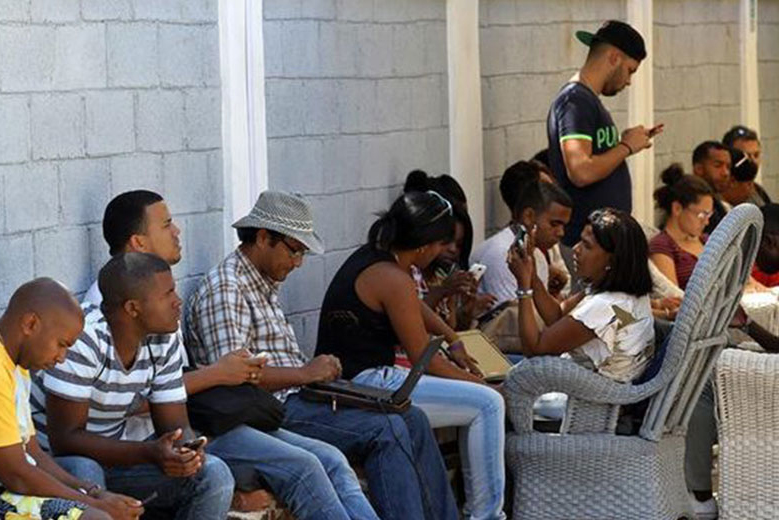
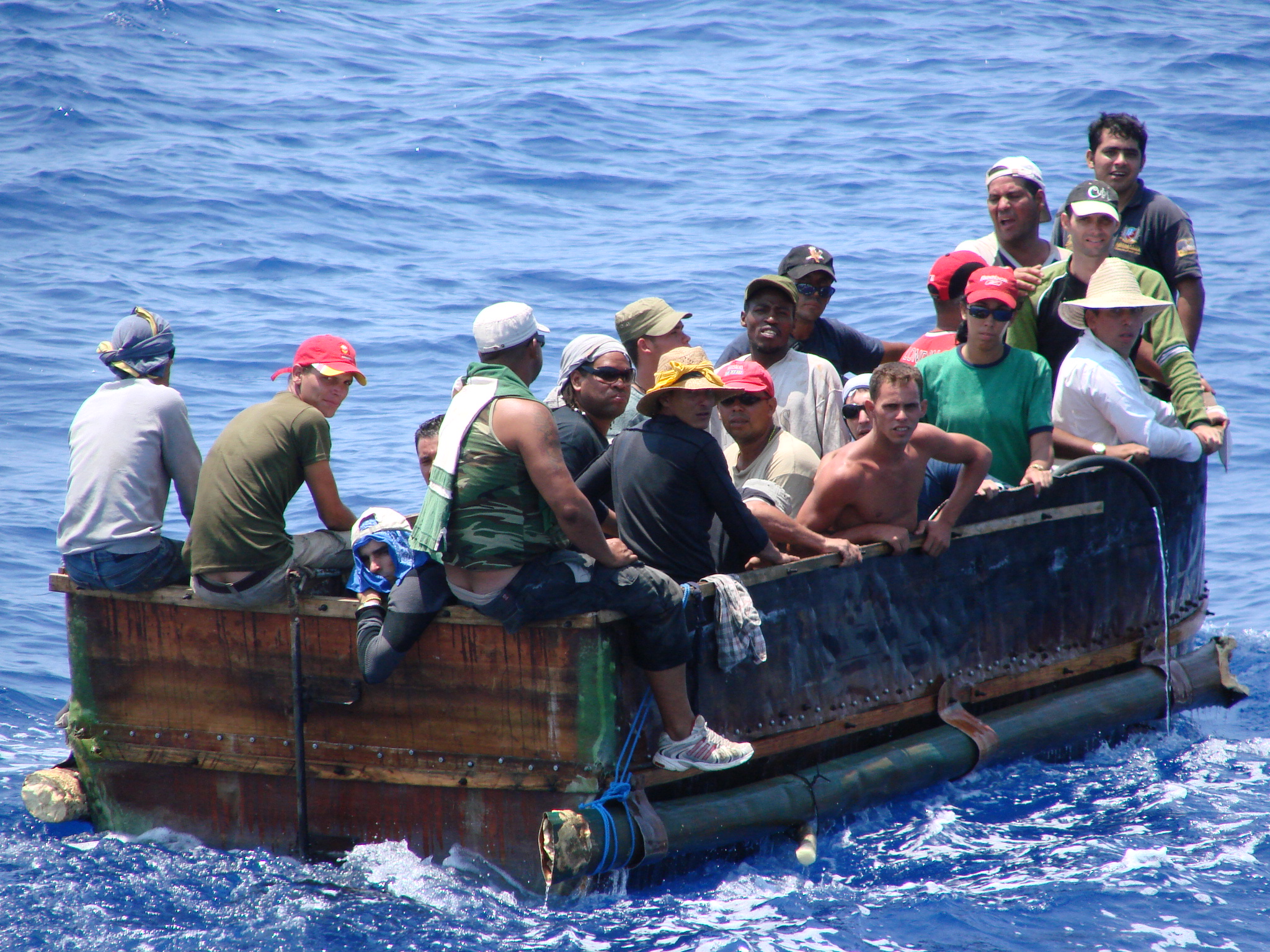
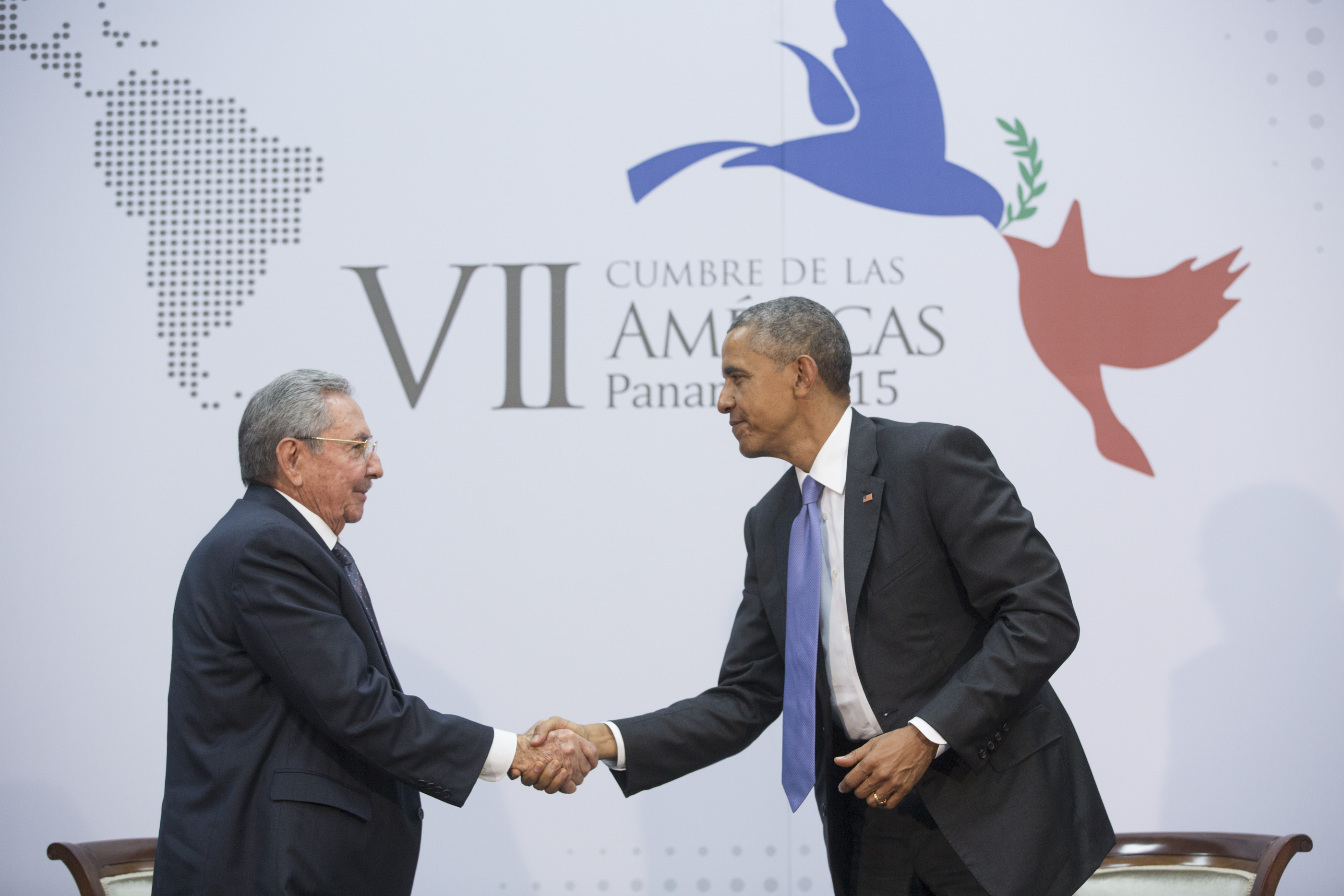
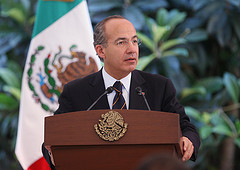
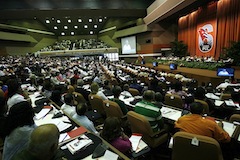
2 Comments
[…] made the comments during a two-and-a-half-hour speech to inaugurate Cuba’s Sixth Communist Party Congress, the first such meeting the island has seen for 14 years. Castro convened the Congress to discuss […]
[…] Latin America News Dispatch, Apr 22, 2011 – […]
Comments are closed.